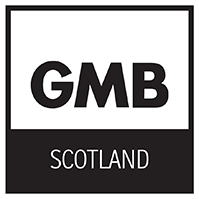
Today GMB Scotland celebrated our reps leading campaigns for equal pay and vowed to continue the fight for fairness in the workplace.
The tireless effort and determination of union reps at the forefront of our campaigning was celebrated at a special event in our head office at Fountain House, Glasgow.
GMB Scotland Secretary, Louise Gilmour praised the reps’ work to secure equal pay before they were presented with certificates of commendation.
She said: “I would like to offer my personal thanks and appreciation to you, the reps helping lead our enduring and continuing fight for equal pay.
“You have been central to the success of that campaign and the lives that have been changed because of your hard work cannot be measured.
“You should be proud of that and the work you day every day to win pay justice in the workplace.”
For years, GMB Scotland has successfully been campaigning to ensure women are paid the same as men for comparable work and has already helped win millions of pounds in rises and backdated pay for members across Scotland.
The GMB Scotland reps celebrated at today’s event were: Carole McIntosh; Mary Mcnaughton; Jackie Ballentyne; Christine Lorimer; Michael Charlton; Annette Drylie; Harry Scott; Elizabeth Crosbie; Frances Stojilkovic; Shona Thomson; Shirley Furie and Fiona Newton.

Today’s event celebrating the commitment of the reps and members leading the campaign coincides with the annual Equal Pay Day marking the day in the year when, based on the gender pay gap, women overall in the UK stop being paid compared to men.
The Fawcett Society, a charity campaigning for gender equality and women’s rights at work which organises the day, said the gender pay gap is currently 10.7% and falling far too slowly.
Jemima Olchawski, chief executive of the Fawcett Society, said: “The gender pay gap must be closed and we need urgent and effective action from employers and government.
“There are so many policy interventions that could turn the dial but the simplest of them all is making flexible work the default.
“A lack of genuinely flexible, quality work traps women in roles below their capabilities and encourages the notion that flexible work is a privilege, not an essential part of a modern economy.”


